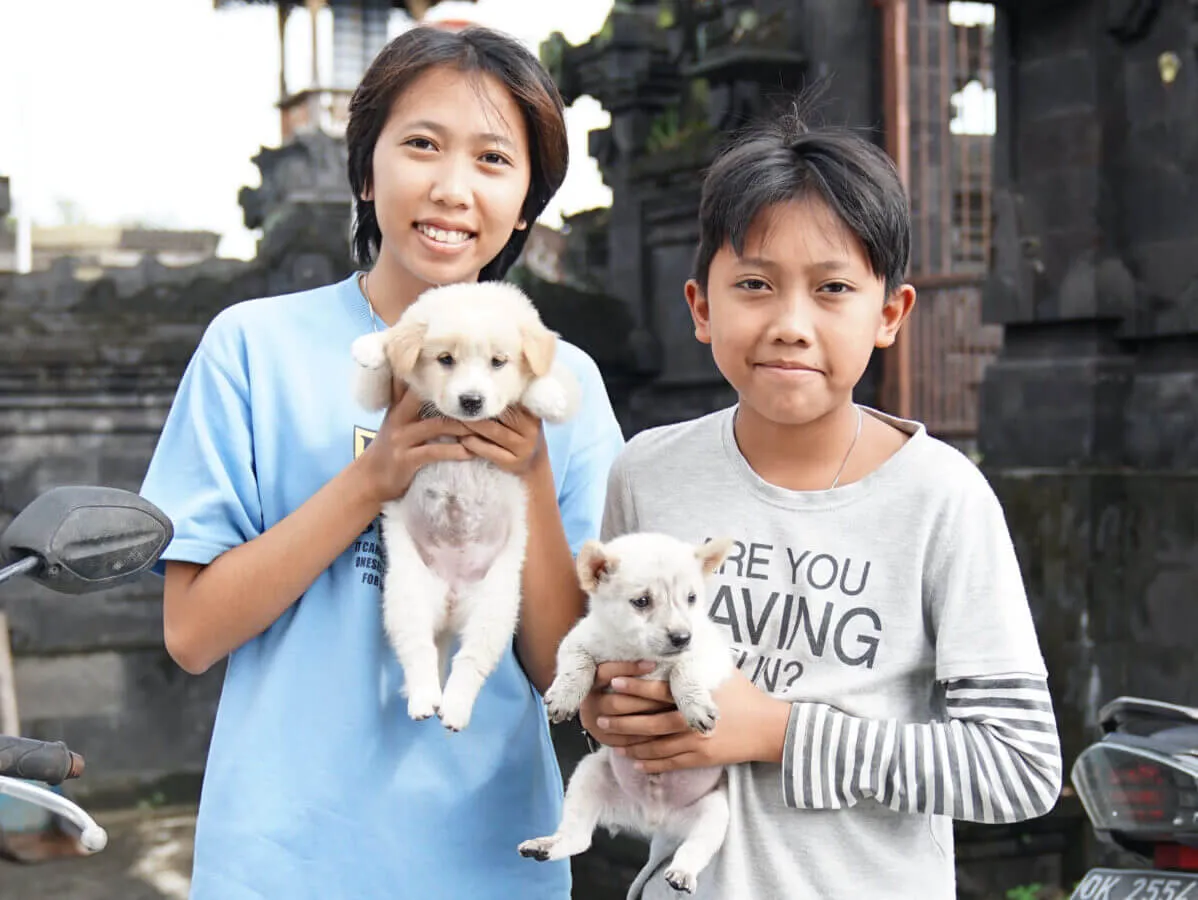


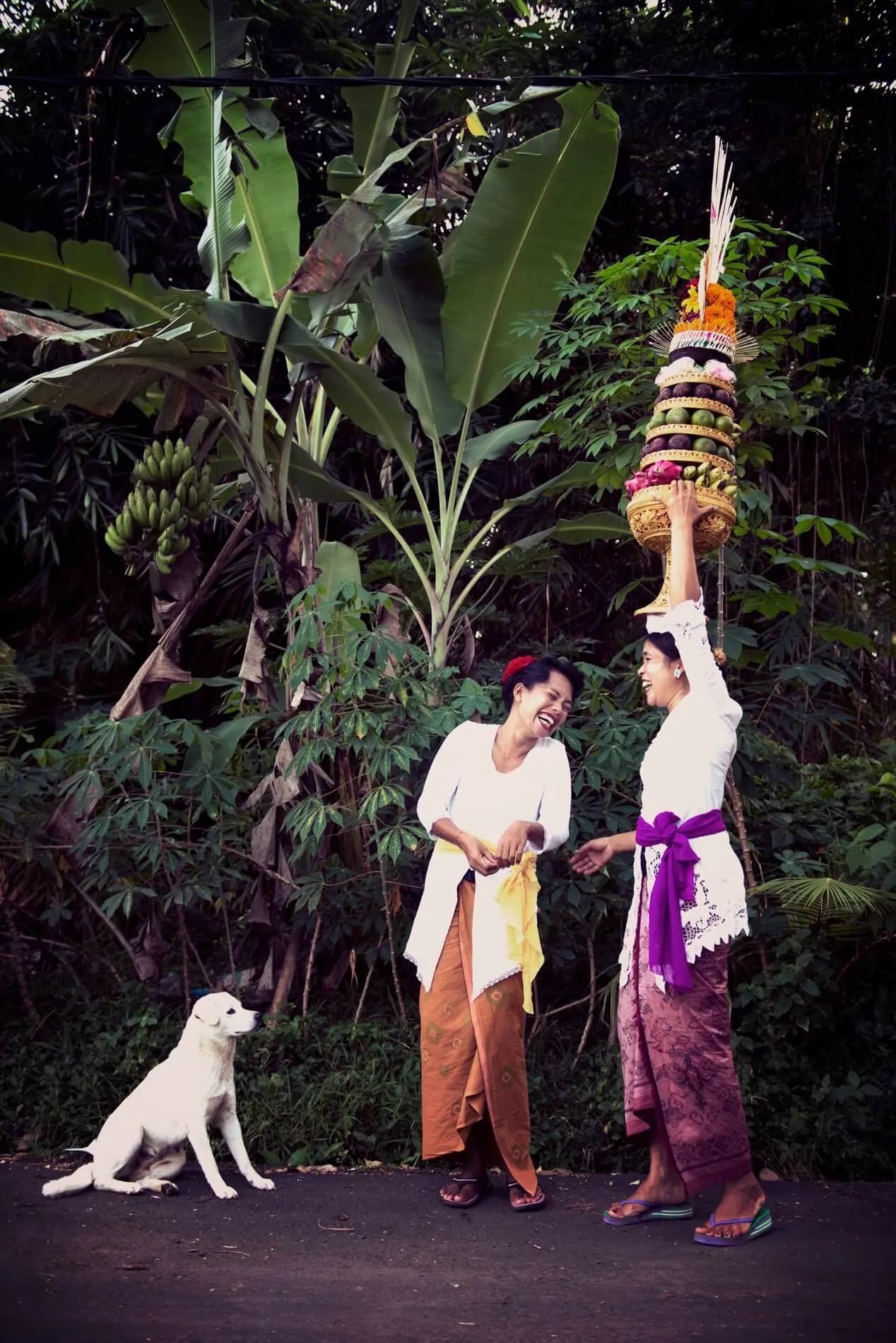
Mission Paws’ible recognises that the health and well-being of the community are intrinsically linked to the health of the environment and the economic growth of tourism—the main livelihood for the Balinese people. Through other initiatives focused on waste management, pollution reduction, and the preservation of natural habitats, we seek to create a sustainable ecosystem that supports human and animal life flourishing.
The literal translation is roughly the “three causes of well-being.”
Crucially, our mission extends beyond geographical boundaries, embracing the diverse tapestry of cultures, languages, and traditions characterising the island. By fostering a spirit of inclusivity and collaboration, we aim to unite individuals from all walks of life in a shared vision of a better, more compassionate world for animals and humans.
In essence, Mission Paws’ible embodies the belief that by working together as a community, we can effect positive change and create a future where stray animal overpopulation is a thing of the past, rabies is eradicated and the island thrives as a vibrant, healthy, and welcoming destination for locals, foreigners, and tourists alike.

Mission Paws’ible is dedicated to supporting those who need us most. Our focus is on assisting local underprivileged individuals with limited finances, homeless animals without caregivers, and solo rescuers lacking a support network. By targeting these groups, Mission Paws’ible addresses critical gaps in community assistance, ultimately working towards a more compassionate and inclusive society.
We help animals in need across the island; however, our sterilisation programs currently focus specifically on the red zones for rabies: Jembrana and Karangasem. With further financial support, we can help these communities manage the spread more effectively and develop relationships with other regencies to prevent rabies from further infiltrating their communities.
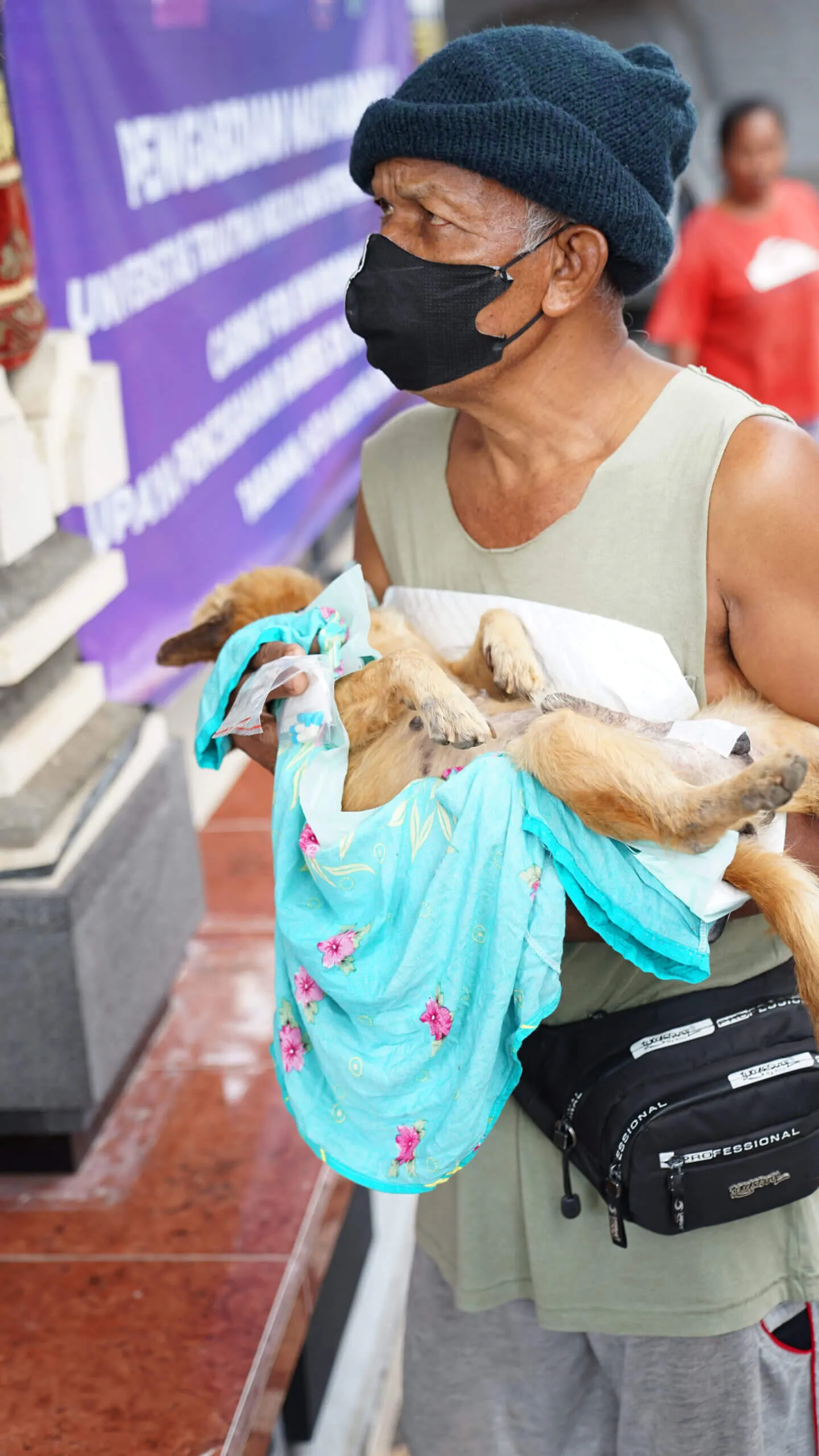
Stray dog sterilisation is vital for controlling rabies transmission, managing population growth, ensuring human safety, promoting animal welfare, and preserving ecosystem health. By reducing the number of stray dogs through sterilisation programs, we can mitigate risks to public health, minimise human-animal conflicts, and address ecological concerns more effectively than through alternatives like culling or euthanasia.
Working in direct partnership with trained, licensed Indonesian vets, we organise mass sterilisation days in communities most in need. Our collaborative sterilisation program, costing just AU$ 22 per procedure, is affordable for first-world countries and highly effective for developing nations that cannot bear the expense. This approach ensures widespread access to essential sterilisation services, benefiting animal welfare and public health initiatives.
And it is potentially reducing the population by 33,500,000 animals. This cost-effective approach demonstrates our commitment to tackling the issue of stray animal overpopulation and promoting responsible animal welfare practices.
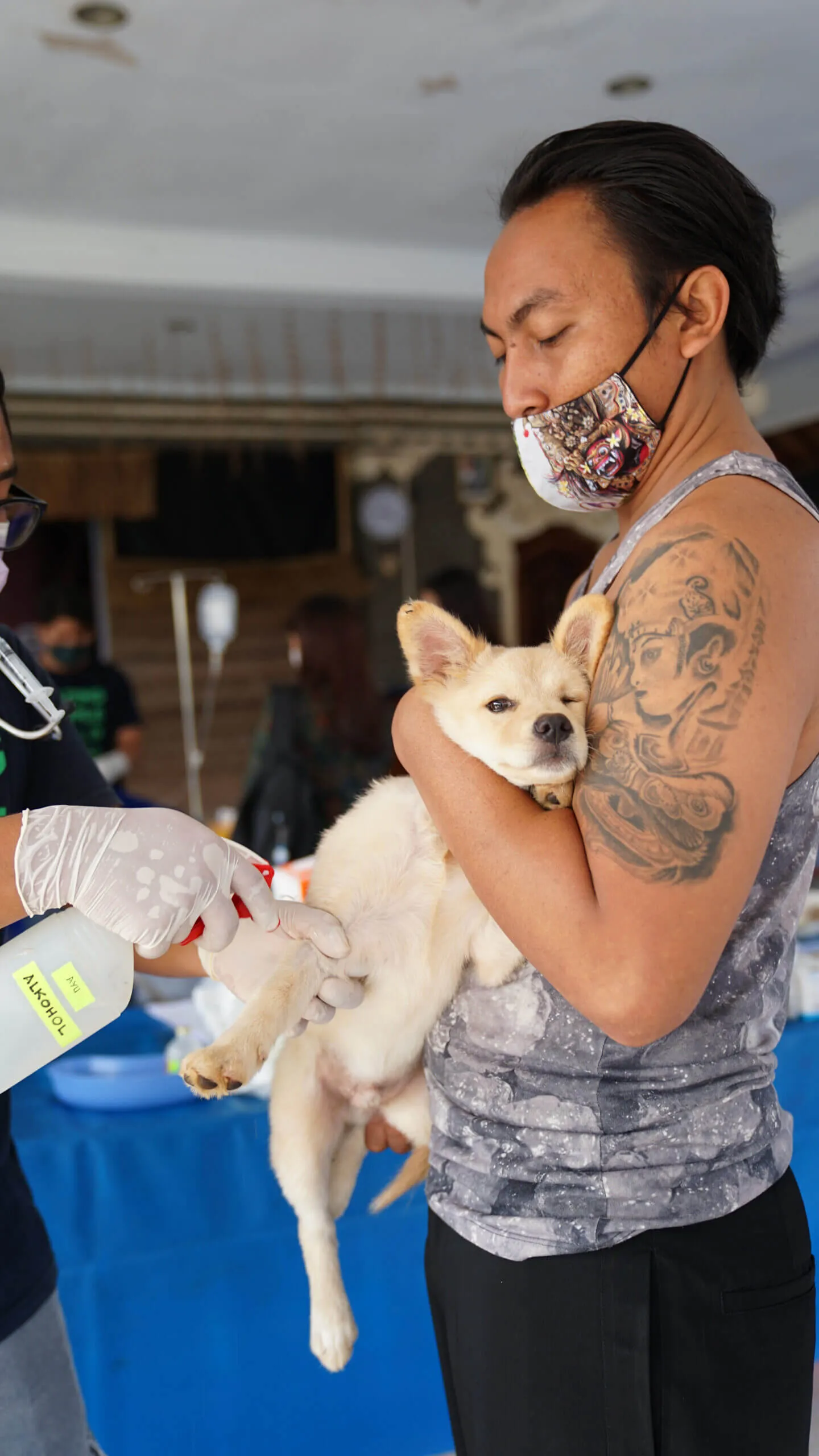
Canine rabies vaccination is crucial for preventing human deaths, achieving herd immunity, and eliminating rabies. By vaccinating a large percentage of the dog population, we can reduce the transmission of the virus, saving lives and reducing healthcare costs. Mass vaccination campaigns have been successful in many regions, significantly decreasing human rabies deaths.
With the support of the local government, free rabies vaccination drives are implemented across the island. However, it’s not enough to effectively reach all communities. With your help, we could offer rabies vaccination simultaneously with sterilisation at an additional cost of $15 per animal.
By providing essential protection against rabies and contributing to the overall health and safety of animals and humans in the community.
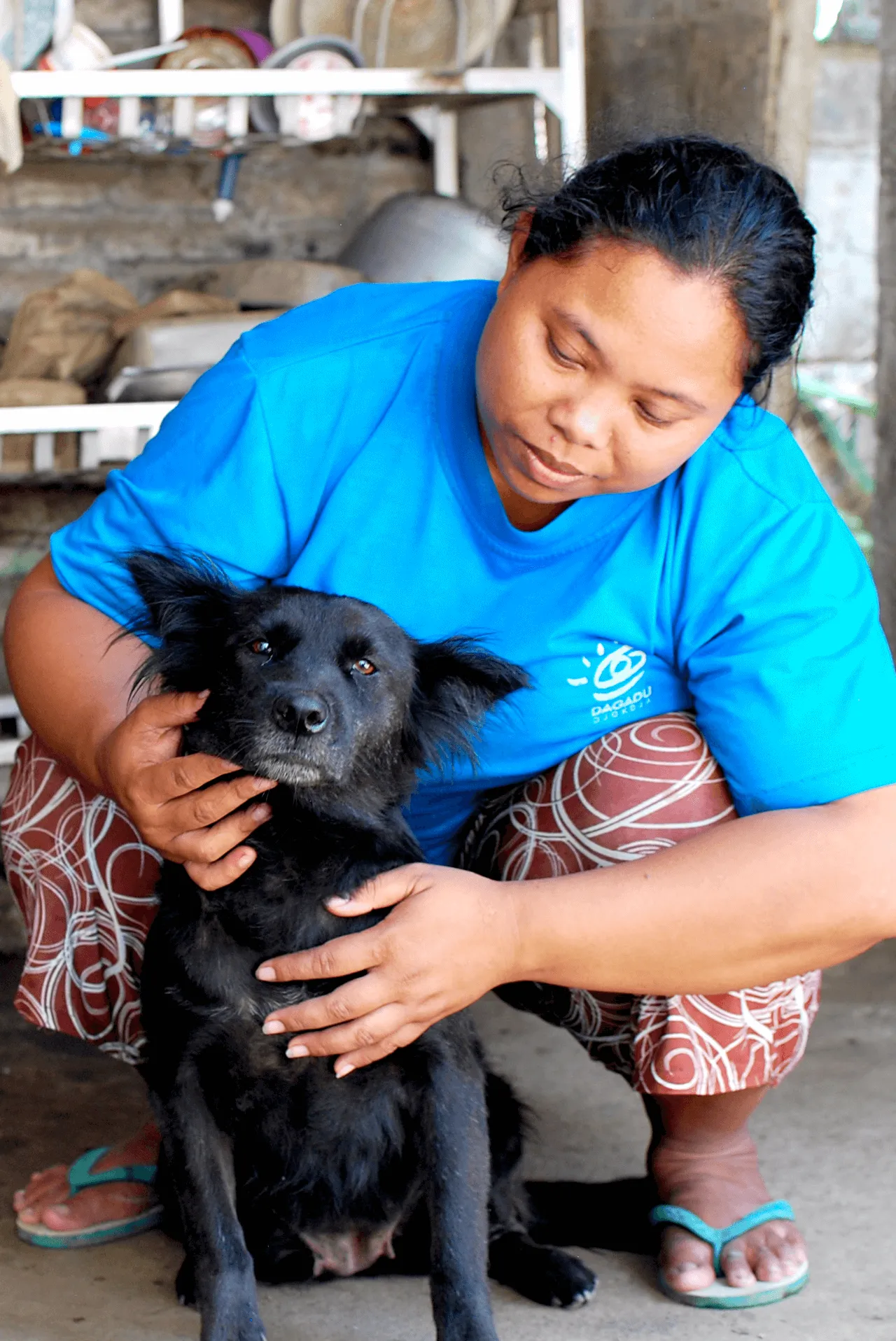
Education in Bali is vital for promoting animal welfare, preventing rabies, conserving the environment, and supporting mental health. It empowers communities to treat animals humanely, recognise rabies risks, adopt sustainable practices, and understand the benefits of the human-animal bond. This knowledge enhances community health, safety, and overall well-being.
Working in partnership with Yayasan Proyek Peduli, we aim to launch our education program alongside our mass sterilisation and vaccination campaigns.
This would enable us to conduct educational sessions five days a week in schools and community banjars, promoting awareness about animal welfare, rabies prevention, environmental conservation, and mental health. Integrating education with our outreach efforts can empower communities to make informed decisions and foster positive change for humans and animals.
Email us to find out how you can sponsor this life-saving initiative.
Mission Paws’ible is dedicated to supporting those who need us most. Our focus is on assisting local underprivileged individuals with limited finances, homeless animals without caregivers, and solo rescuers lacking a support network. By targeting these groups, Mission Paws’ible addresses critical gaps in community assistance, ultimately working towards a more compassionate and inclusive society.
We help animals in need across the island; however, our sterilisation programs currently focus specifically on the red zones for rabies: Jembrana and Karangasem. With further financial support, we can help these communities manage the spread more effectively and develop relationships with other regencies to prevent rabies from further infiltrating their communities.

Stray dog sterilisation is vital for controlling rabies transmission, managing population growth, ensuring human safety, promoting animal welfare, and preserving ecosystem health. By reducing the number of stray dogs through sterilisation programs, we can mitigate risks to public health, minimise human-animal conflicts, and address ecological concerns more effectively than through alternatives like culling or euthanasia.
Working in direct partnership with trained, licensed Indonesian vets, we organise mass sterilisation days in communities most in need. Our collaborative sterilisation program, costing just AU$ 22 per procedure, is affordable for first-world countries and highly effective for developing nations that cannot bear the expense. This approach ensures widespread access to essential sterilisation services, benefiting animal welfare and public health initiatives.
And it is potentially reducing the population by 33,500,000 animals. This cost-effective approach demonstrates our commitment to tackling the issue of stray animal overpopulation and promoting responsible animal welfare practices.

Canine rabies vaccination is crucial for preventing human deaths, achieving herd immunity, and eliminating rabies. By vaccinating a large percentage of the dog population, we can reduce the transmission of the virus, saving lives and reducing healthcare costs. Mass vaccination campaigns have been successful in many regions, significantly decreasing human rabies deaths.
With the support of the local government, free rabies vaccination drives are implemented across the island. However, it’s not enough to effectively reach all communities. With your help, we could offer rabies vaccination simultaneously with sterilisation at an additional cost of $15 per animal.
By providing essential protection against rabies and contributing to the overall health and safety of animals and humans in the community.

Education in Bali is vital for promoting animal welfare, preventing rabies, conserving the environment, and supporting mental health. It empowers communities to treat animals humanely, recognise rabies risks, adopt sustainable practices, and understand the benefits of the human-animal bond. This knowledge enhances community health, safety, and overall well-being.
Working in partnership with Yayasan Proyek Peduli, we aim to launch our education program alongside our mass sterilisation and vaccination campaigns.
This would enable us to conduct educational sessions five days a week in schools and community banjars, promoting awareness about animal welfare, rabies prevention, environmental conservation, and mental health. Integrating education with our outreach efforts can empower communities to make informed decisions and foster positive change for humans and animals.
Email us to find out how you can sponsor this life-saving initiative.
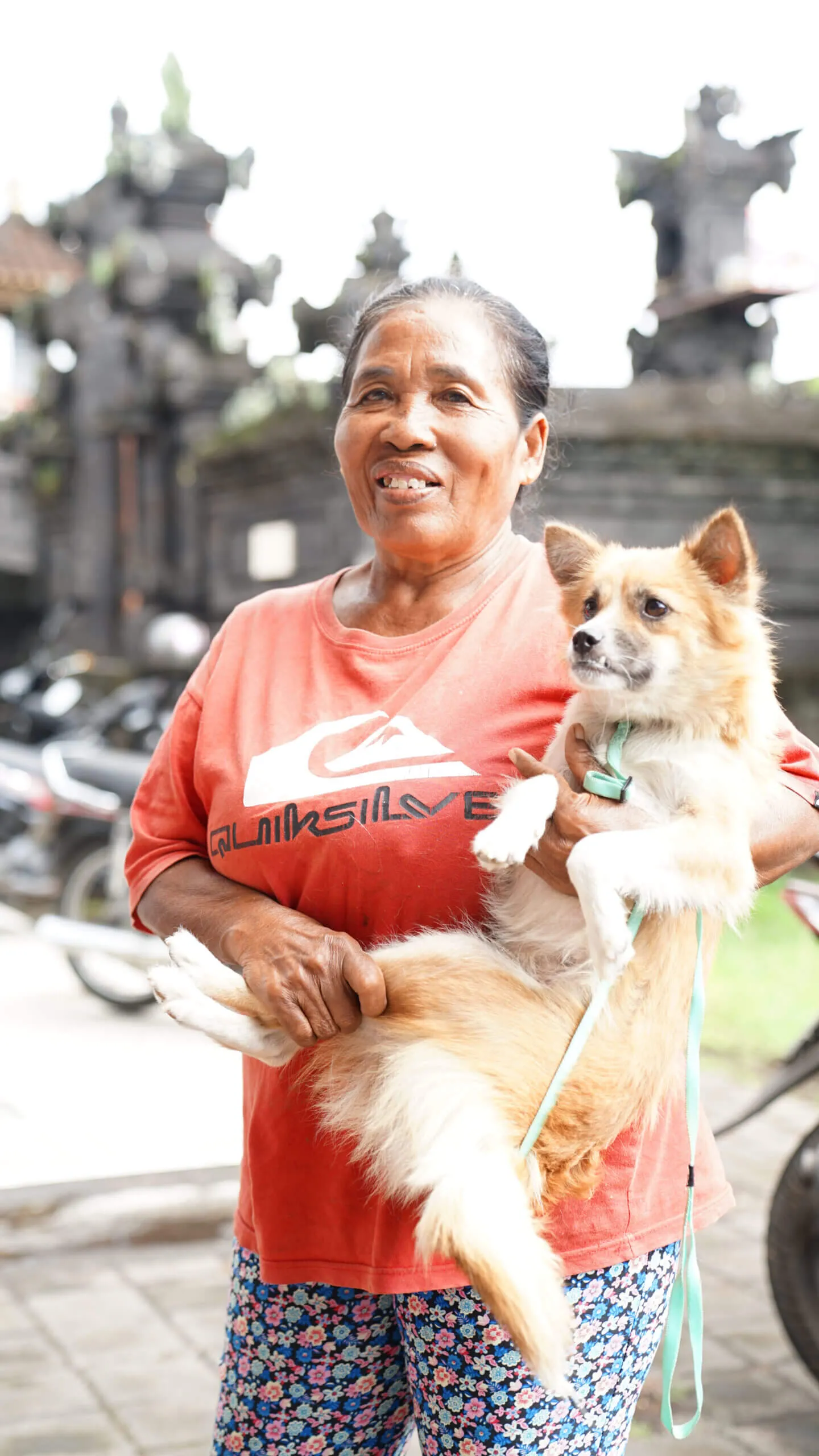
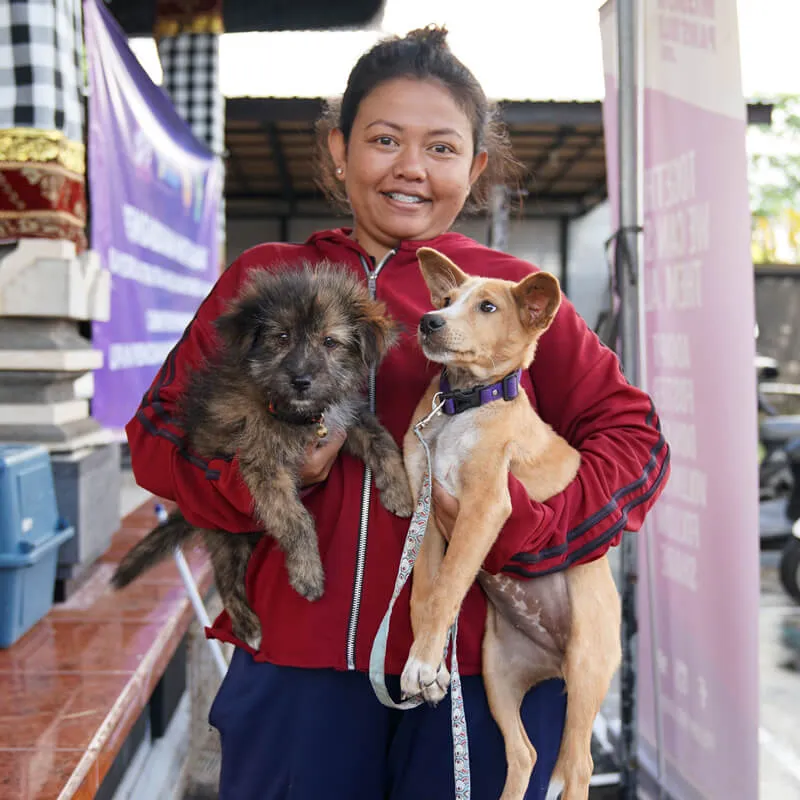
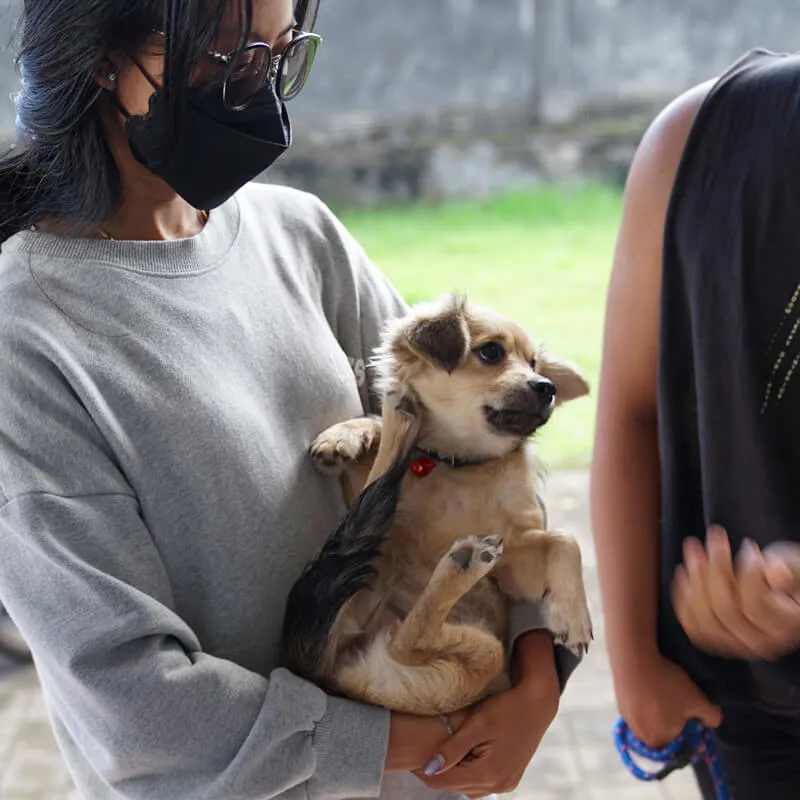
Data recorded 2020 – 2024

ANZ
BSB: 013396
Account Number: 419686726
SWIFT: ANZBAU3M
ABN: 75628379500
BNI
Account Number: 0982421443
SWIFT: BNINIDJA
AHU-AH.01.06-0040943
BANK OF AMERICA
Account Number: 229059471076
Paper Electronic: 063100277
Wires: 026009593
Routing Number: 063100277
EIN 81-2989148